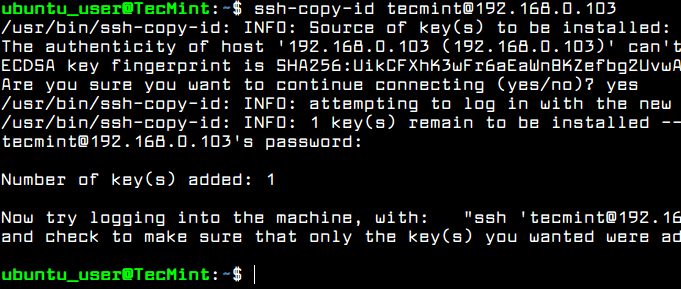
If you don’t want to use a passphrase just press Enter. Enter passphrase (empty for no passphrase): If you choose to use a passphrase you will get an extra layer of security. Whether you want to use a passphrase, it’s up to you. Next, you’ll be prompted to type a secure passphrase. Press Enter to accept the default file location and file name.

Generate a new 4096 bits SSH key pair with your email address as a comment by typing: ssh-keygen -t rsa -b 4096 -C output will look something like this: Enter file in which to save the key (/home/yourusername/.ssh/id_rsa): If there are existing keys, you can either use those and skip the next step or backup up the old keys and generate new ones. If the command above prints something like No such file or directory or no matches found it means that you don’t have SSH keys on your client machine and you can proceed with the next step, and generate SSH key pair. You can do that by running the following ls command

Creating SSH keys on Ubuntu #īefore generating a new SSH key pair first, check for existing SSH keys on your Ubuntu client machine.
SSH COPY ID SSH HOW TO
We will also show you how to set up an SSH key-based authentication and connect to your remote Linux servers without entering a password.

In this tutorial, we will walk through how to generate SSH keys on Ubuntu 18.04 machines. Using SSH keys is more secure and convenient than traditional password authentication. The two most popular mechanisms are passwords based authentication and public key-based authentication. Secure Shell (SSH) is a cryptographic network protocol used for a secure connection between a client and a server and supports various authentication mechanisms.


 0 kommentar(er)
0 kommentar(er)
